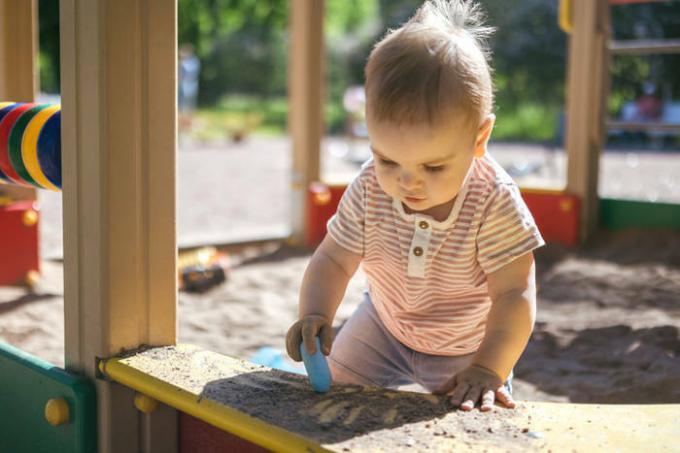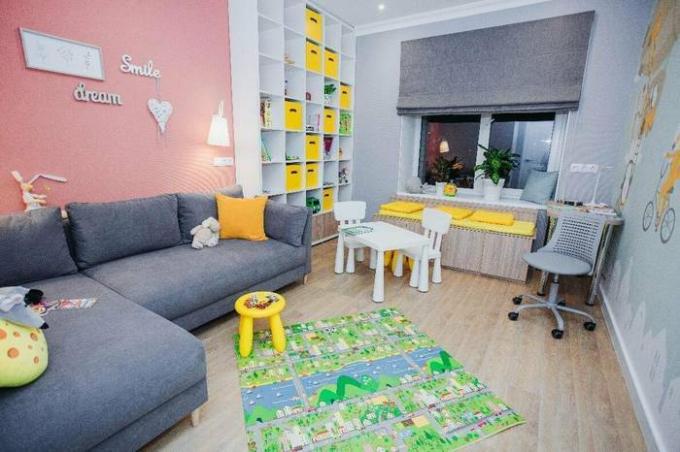The psychologist told how to properly support a child at different ages. What kind of support does a child need at a certain age?
The period of childhood - from birth to the formation of an adult personality - is similar to the transformation of a butterfly, which goes through various stages of development: egg-caterpillar-pupa-imago. The needs and challenges inherent in children at different stages of growing up are very different from each other. At this time, parents should also apply their ability to be flexible, relevant and adaptive, to accept the changes of children, to develop with them.
Regardless of age, the first experience is the most memorable. If it is painful and prolonged, and there is no time to recover, it can form trauma. One of such periods can be the children's experience of being in the hospital, when the parents are not around, and the child perceives the doctors, the ward, the procedures for the first time. Together with the psychologist Tatyana Lobodinskaya, we analyze how to support the child in his experiences, based on age psychology, so as not to form a trauma.
Infancy - the period from birth to a year of life
Child begins to adapt to the environment, forms the autonomous skills of respiration, digestion, thermoregulation. He is still helpless, only adults with their timely care can help him cope with basic tasks. During this period, the foundations of trust in the surrounding world and people are laid, fundamental ideas about the world are formed.
How to support a child at this age
The basic needs of an infant are security, grooming, tactile and emotional contact. Parents at this time, communicating with the child through bodily communication, the voice, satisfying his basic needs, are primarily a means of survival for the baby.

Encourage your yearlings to be independent
Early childhood (from 1 to 3 years old)
The child begins to realize his autonomy, the concept of "we" is transformed into "I": psychological independence child. He learns to do something on his own (walk, eat, dress). A child at this stage of life is guided by the formula "I myself" and "I am what I can." Based on the experience of relationships with parents, a certain type of attachment is formed in the child. This is a "working style" of building relationships with people, which forms the basis of future life.
How to support a child at this age
It is necessary to support the child in his desire for independence. Always try to acknowledge the importance of your little one’s emotions, both positive and negative, and in no case devalue the child’s experiences.
Childhood itself ("age of the game", from 3 to 6 years old)
The child balances between "initiative" and "guilt", between "want" and "not allowed." The formula “I am what I want” refers to this period. Children become "why", actively explore the world around them. They try on different roles, imitate, copy, test different behavioral strategies.
How to support a child at this age
It is worth living the treatment process with a preschooler in a playful way. Parents should encourage learning and playfulness, answer questions "why", patronize, but also encourage independence.

Main support for a child 3-6 years old - play
Junior school age (6-8 years old)
Time to leave the family: to a society that has clear rules, orders and requirements. The child learns to adapt to the world of other people, structures, the requirements of systematic learning. Interest is the driving force behind this period: "I am what I have learned." This is the period of building friendships, the need to be accepted, especially among peers. This can be a time of self-doubt, self-doubt, reassessment of familiar truths, a sharp expansion of contacts and knowledge.
How to support a child at this age
Children of primary school age can already explain a lot on a conscious level. Do not intimidate them with the procedures or the consequences of the disease, but explain the feasibility and benefits of treatment. The child needs parental love and support in mastering unknown skills necessary for social adaptation.
Early adolescence (9-12 years old)
The process is activated puberty. The role of peers becomes even more important, the need to belong to social groups is growing. Hormonal changes can contribute to the appearance of anxiety, emotional instability, self-doubt, withdrawal.
How to support a child at this age
It is important for middle school children to be in contact with friends. Do not be offended if your support is not enough for them, but make sure that the children do not feel disconnected from their peers. There is a need for an interpretation of sudden emotional storms and bodily transformations that will soon come. This forms the basis of trust in parents, the belief that there is someone to turn to for support, to share experiences.
Adolescence (12-16 years old)
The body is actively transforming, strength is needed to accept oneself, to build relationships with peers who are also experiencing hormonal storms. At the same time, adolescents need more time to be alone, relations with their parents are changing beyond recognition, new freedoms are being defended. Separation begins: separation of oneself from the parental family, the emergence of secrets. In addition to all these tasks, the question of professional choice also arises: "Who am I?", "Who do I want to become?" The adolescent is faced with an important task: to put himself together again, accept, love, find goals in life and build reliable relationships.
How to support a child at this age
High school students (adolescents) want their opinion to be taken into account, to be treated at an adult level. Emphasize agreements, delegation / redistribution of responsibility. Respect their privacy and do not interfere with their personal space.

Don't interfere with your teen's privacy
Youth (17-21 years old)
A period of new social roles, a place in society, rebellion and maximalist demands for oneself and the world. Experiments begin, attempts to find a soul mate, a search for their own life path.
How to maintain at this age
Boys and girls are no longer formally in childhood. At this time, it is important that parents just be there, do not interfere and believe in the power of youth. So that they were not indifferent, they suggested ideas for development, but did not give empty promises.

This is what family rooms look like in public children's hospitals.
For the interaction of parents with a sick child, favorable conditions must be created. But often in the ward there may be no place for relatives of small patients. The charity organization Ronald McDonald House Foundation aims to improve the experience of the child and his family in the hospital. For five years, the Foundation has been creating and supporting Family Rooms in public children's hospitals - spaces of family comfort and home warmth, so that parents and children are together in a difficult place for them period. Relatives can stay in the room while they are waiting for their baby after the procedures, or use it to spend time together, and in some rooms they can stay overnight. Family Rooms have toys and books for children, cozy armchairs and sofas for parents to relax, a kitchen for cooking and a bathroom. The use of such rooms is free, and guests are greeted by friendly administrators who will help, calm down, and treat them to tea or coffee. There are five such rooms in Ukraine: in regional state hospitals in Kiev, Kharkov, Lvov, Sumy and Vinnitsa.
You will also be interested in reading:
Useful games: how to increase self-esteem in a child
20 psychologist games to help your child release anger
How to Help Your Child Make Friends: Top Tips



